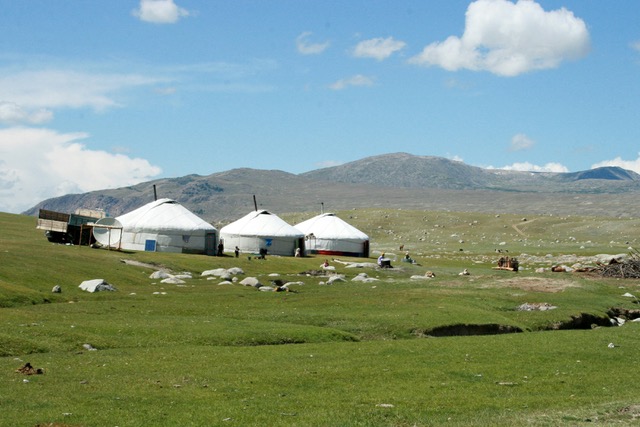Agribusiness and Trade Promotion (ATP and E-ATP) in West Africa
%20in%20West%20Africa.jpeg)
Agribusiness and Trade Promotion (ATP and E-ATP) in West Africa
The ATP and E-ATP programs increased the value and volume of intra-regional trade in maize, rice, millet, sorghum, poultry, and other agricultural commodities in West Africa by reducing the incidence of physical and policy-related barriers to moving agricultural and related commodities regionally in West Africa. The projects’ emphasis was on facilitating trade in staple foods from surplus to deficit areas; enhancing linkages among agricultural producers and agro-input suppliers, agro-processors and distributors; improving the capacity for private sector and non-governmental advocacy in regional and national policies that support a conducive environment for increased regional trade; and improving the efficiency of trade transactions and regional market access, in particular through improved regional market information systems and facilitating market linkages. JAA staff were facilitators and technical resources for one of the project’s most notable successes: the creation of the West Africa Grain Network (WAGN) across eight countries. This organization brought together stakeholders from across West Africa to address common constraints facing productivity and trade in cereal value chains. JAA began its work by visiting Ghana, Burkina Faso, Mali, Benin, Togo and Cote d’Ivoire to assess the status of the grain value chains, and the readiness of the stakeholders in each country. After confirming the local level enthusiasm for the WAGN, JAA helped bring together stakeholders for a consultative meeting, and facilitated the creation of an organizational structure and strategic plan. JAA also support WAGN by helping to build “interprofession” capacity at the national level, and creating governing by-laws for the organization model. In Niger and Burkina Faso, JAA worked with the Afrique Verte program to help local organizations representing female producer groups develop their capacity for branding and packaging. While international products have made considerable headway in local markets in these countries using branding and packaging techniques, these practices are virtually absent among local producers, giving them an unwarranted reputation for poor quality. Moreover, these producer groups had little technical capacity to develop more sophisticated packaging. Responding to these unique constraints, JAA consultants helped develop set of low-cost labels and marketing practices to help the producers distinguish themselves and represent their quality. JAA then trained stakeholders in using the packaging.JAA also helped to facilitate market linkages along the regional transit corridors with Senegal. JAA helped the project identify and profile domestic and international buyers and market opportunities, facilitated public-private partnerships, and improved the use and availability of market information. JAA developed a “Who’s Who Guide” for key markets in Senegal (by value chain) and developed business models for replication and investment. These activities assisted the project in identifying private sector actors and investors that support product linkages for the sorghum; millet and poultry value chains that have potential markets in Dakar, and assisted in achieving new transactions.
Duration: 2013 - 2013



